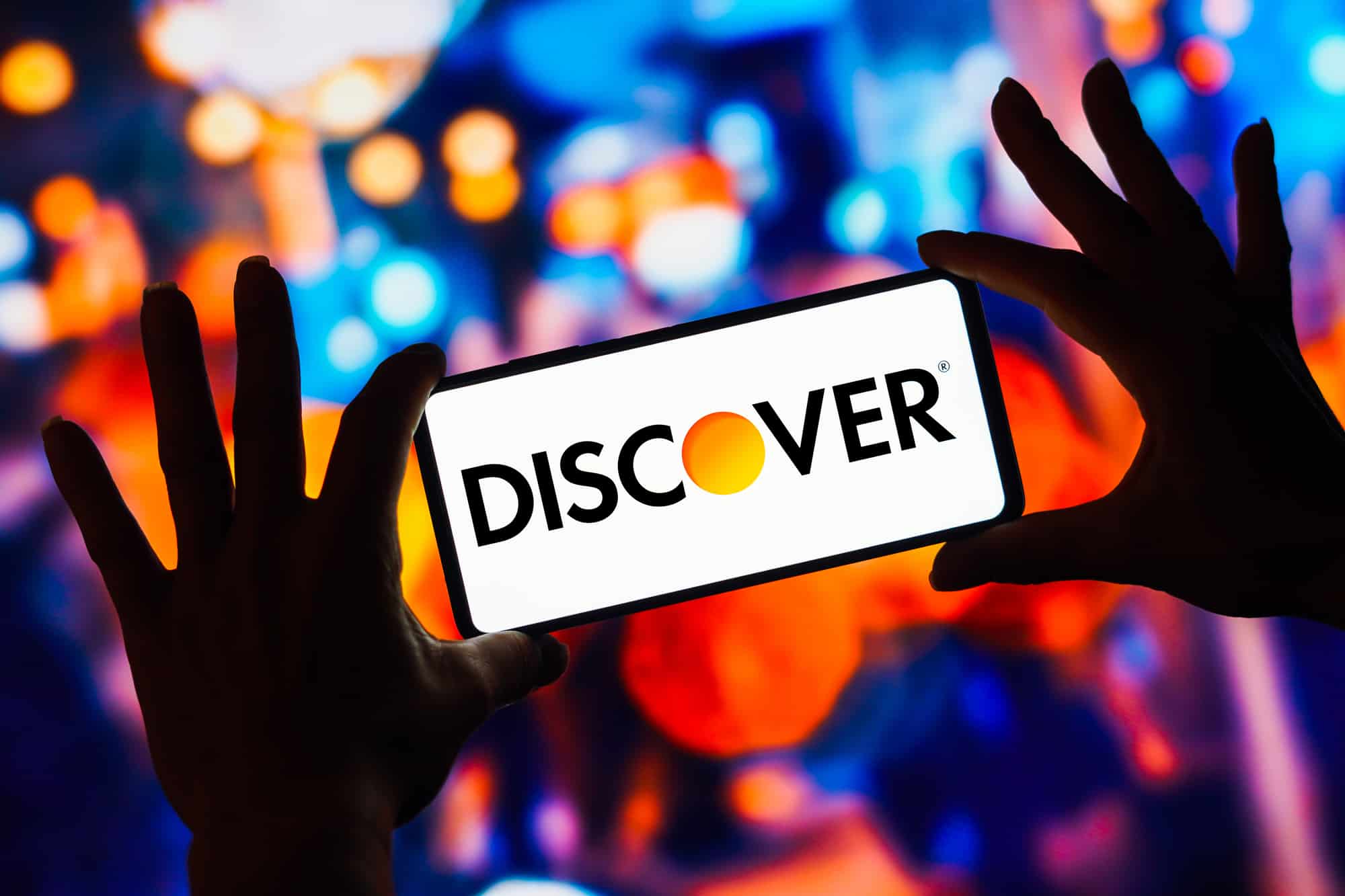Some people have known what they wanted to be when they grew up since they were nine years old. Other people get to their junior year of college and are still considering options. While there’s no one “right way” to choose the career for you, one thing you can think about is choosing a career path that’s likely to have many jobs of the future.
Jobs of the future? What the heck are those? And how do you find them and prepare for them?
What Do You Mean By “Jobs of the Future?”
When we say “jobs of the future,” we’re talking about two kinds of jobs.
First, jobs of the future can exist in an industry that’s poised to experience exponential growth in the next decade. Second, a job of the future can be in a new industry, but the role is still being defined.
So, where should someone look for a job of the future?
In its 2023 Future of Jobs report, the World Economic Forum (WEF) spoke to businesses to see what they think the future of jobs looks like. A majority (86.2%) reported that adopting new and emerging technologies will have the biggest impact on the employment market.
As that happens, employers expect jobs to grow in these areas:
- Big data analytics
- Climate-change mitigation technology
- Environmental management technologies
- Encryption and cybersecurity
- Biotechnology
15 Jobs of the Future to Prepare for Now
So, how can you use these predictions today?
Here are 15 jobs of the future you can prepare for right now. Keep in mind that some of these roles require specialized training or a specific degree to land one. (Spoiler alert: Jet pack tester is not on our list!)
1. AI and Machine Learning Specialists
Expected job growth: 40% between 2023 and 2027
Though artificial intelligence (AI) and machine learning (ML) aren’t new, being an AI or ML specialist is definitely one of the jobs of the future. But what is an AI or ML specialist?
Well, since this job is so new, the answer is, “It depends!” In most cases, an AI or ML specialist is an engineer who programs the algorithms that train the AI learning models. But an AI or ML specialist can also be a data scientist, creating and labeling the data sets that the machine learning engineer uses to program the algorithm. But even a prompt engineer can be an AI or ML specialist.
2. Big Data Analyst
Expected job growth: 11% between 2018 and 2028
In some respects, this job of the future is two jobs in one. Let’s break this down.
A data analyst analyzes data to help companies uncover patterns and insights. These findings help leaders make mission-critical decisions that can guide the overall company strategy.
Big data is a large data set — so large it’s nearly impossible for a single system to process and analyze all that information.
So, a big data analyst analyzes large datasets and makes recommendations based on the output. And because there’s more data than ever to analyze, companies are looking for people who specialize in big data analysis.
3. Business Intelligence Analysts
Expected job growth: 21% between 2018 and 2028
Business intelligence analysts are similar to any data analyst in that they analyze data to help their company make data-driven decisions. However, a business intelligence analyst focuses on financial and marketing reporting.
4. Commercial and Industrial Designers
Expected job growth: 3% between 2018 and 2028
At first glance, a commercial and industrial designer doesn’t seem like a job of the future. After all, commercial and industrial designers create products, and products have been around for centuries!
>>RELATED: What Is a Product Designer?
But as more products of the future become reality, things like smart appliances and self-driving cars (and maybe flying cars!) will need commercial and industrial designers to bring these ideas to life.
5. Content Creator
Expected job growth: 13% between 2018 and 2028
Your eyes are not deceiving you. Yes, we think a content creator role is a job of the future. Why?
It’s true that AI can and will make it easier for people to generate text, images, and even videos. And even if AIs improve to the point that they no longer hallucinate, an AI doesn’t have any real-world experience.
So, while AI can create a blog post or video about a specific product or event, content creators will still be needed to talk about what it’s like for a human to use a specific product or attend a particular event.
>>RELATED: I Asked ChatGPT to Write Resumes, Including Mine. Here’s What Happened.
6. Cybersecurity
Expected job growth: 32% between 2022 and 2032
With so much of our personal information stored in the cloud these days, those repositories have become juicy and valuable targets for people with less than honorable intentions, which is precisely what makes cybersecurity another job of the future.
You can work for a company locking down a site from attacks and ensuring customer data stays secure. Or you can be an ethical hacker, finding and reporting security problems to companies.

Cybersecurity
Step into the shoes of a cybersecurity pro in this free course from Mastercard. You'll create a phishing email then design a security awareness training.
Avg. Time: 1-2 hours
Skills you’ll build: Cybersecurity, design thinking, problem solving, data analysis
7. Data Protection/Data Privacy
Expected job growth: 32% between 2018 and 2028
Because so much of our data is stored virtually, many countries are enacting laws that require companies to keep it safe and secure. If you work for a company that does business in one of those countries, it has to comply, which is why working in data protection and data privacy is poised to be a job of the future.
As a data privacy officer, you’ll keep your data repositories safe. But, interestingly, you’ll also be responsible for ensuring everyone who works at the company complies with privacy laws. As an example, you may need to ensure everyone in customer service understands what they can and can’t discuss on the phone.
8. Data Engineers
Expected job growth: 8% between 2022 and 2032
Data engineers work in tandem with data scientists and data analysts. They create, test, and maintain the systems that hold all the raw data that data scientists and analysts use.
While they may not analyze the data, data engineers play a significant role in collecting, storing, and maintaining the data, making this one of the jobs of the future that’s expected to grow.

Introduction to Data Science
Test your data science abilities in this free course from Commonwealth Bank. You'll learn how to anonymize a data set, discover the difference between structured and unstructured datasets, and more.
Avg. Time: 3-4 hours
Skills you’ll build: Statistics, unstructured data, APIs, database design
9. Digital Marketing and Strategy Specialists
Expected job growth: 6% between 2022 and 2032
Between privacy laws that vary between countries and states, rules about what websites can and cannot track, and trying to keep a website front and center, the rules of digital marketing are always changing. That’s why being a digital marketing and strategy specialist is a job of the future.
These knowledgeable gurus will help ensure a company’s digital presence stays ahead of changes, pivots to adapt when necessary, and complies with all the rules and regulations.
10. Teacher
Expected job growth: 10% between 2023 and 2027
Teacher probably isn’t something that comes to mind when you think about jobs of the future. But given that some of today’s jobs didn’t exist 30 years ago (social media manager anyone?), teachers play a huge role in preparing students for whatever comes next!
RELATED: Top 10 Teaching Skills for Your Resume and How to Highlight Them
11. FinTech Engineers
Expected job growth: 9% between 2018 and 2028
Between cryptocurrency and paying for something with your phone, the fintech industry will have plenty of jobs of the future.
Similar to being an AI or ML specialist, the kinds of jobs available are just beginning to come into focus. For example, you could become a fintech engineer and do anything from analyzing data to creating the backend systems that accept and store payments.
12. Software Engineers and Application Developers
Expected job growth: 25% between 2022 and 2032
What’s interesting about software engineering and application developers is that while they are jobs of the future, they are also the jobs of the present. All of the technology we use every day is created by software engineers who ensure things work correctly every time.
And with the growth in AI, advances in blockchain, and everything in between, training as a software engineer now can prepare you for a future career in almost any sector.

Software Engineering
Build practical software engineering skills in this free course from Goldman Sachs. You'll crack a leaked password database then make suggestions for improving security.
Avg. Time: 1-2 hours
Skills you’ll build: Cryptography basics, password cracking, password best practices
13. Renewable Energy
Expected job growth: Between 52% and 68% from 2020 to 2030
As more people embrace sustainable living, the need for alternative energy methods will grow. That’s why working in renewable energy makes our list of jobs of the future.
“Renewable energy,” of course, isn’t so much a job title as it is a category. But within the field, you can work as a scientist who improves how solar energy powers a home or a sales representative who convinces people to “go green.”

Climate and Sustainability
Test drive a career in renewable energy in this free course from BCG. You'll act as an advisor and help your client reduce their carbon footprint.
Avg. Time: 3-4 hours
Skills you’ll build: Emissions categorization, risk identification, data analysis, strategic reasoning
14. Sustainability Specialists
Expected job growth: 6% between 2022 and 2032
If working in renewable energy isn’t up your alley, another eco-friendly job of the future is working as a sustainability specialist. In this job, you work for or advise a company on changing its current practices to create a more sustainable future. You could help the company cut its carbon footprint, improve its recycling efforts, and ensure it carries out new sustainability initiatives.

Climate Change & Sustainability
Explore a career in sustainability in this free course from EY. You'll learn how to benchmark sustainability performance, present solutions to your clients, and more.
Avg. Time: 2-3 hours
Skills you’ll build: Excel, PowerPoint, critical thinking, data analysis, external communications.
15. Video Game Engineer
Expected job growth: 21% from 2018 to 2028
Video game engineer seems like an unlikely candidate for jobs of the future since video games have been around a long time. But as virtual reality becomes more, well, real, video game engineers will play a key role in designing virtual worlds and ensuring they run correctly.

Software Engineering
Explore a career in the video game industry in this free course from Electronic Arts. You'll propose a new feature for The Sims, create a game object class, and more.
Avg. Time: 5-6 hours
Skills you’ll build: Object-oriented design, class design, data structure, game engine technology
Which of the Jobs of the Future Is Right for Me? Quiz
Which job of the future should you pursue? We’ve devised a free quiz that takes into account your strengths, personality, and career goals to figure out which of the jobs of the future is right for you.
Skills You’ll Need for These Jobs of the Future
The WEF also asked employers what skills they think will be most important in future applicants. In order of most to least importance, they are:
- Creative thinking
- Analytical skills
- Technological literacy
- Curiosity and lifelong learning
- Resilience, flexibility, and agility
Other essential skills were motivation, empathy, active listening, and attention to detail.
Most of these skills are soft skills, meaning they’re the skills you use to interact with others and get your work done. Unlike technical or hard skills, they’re not necessarily skills you learn in a class or course, but rather ones you develop as you get professional experience.
“Professional experience” doesn’t mean you need to work a full-time job, but rather get experience through experiences like:
- Internships: work experiences where you complete entry-level work for a company
- Externships: experiential learning opportunities where you follow a professional for a day in the life at their workplace
- Volunteering: contributing your time to help a charitable or social organization
- Job simulations: free virtual learning experiences where you complete real-world tasks for top companies
These can help you understand not only how to complete tasks that you might do in the workplace, but how you interact, collaborate, and coordinate with other professionals to get the job done.
Prepare for Tomorrow Today
The best way to land one of the jobs of the future is to start preparing today. But if you aren’t sure what career to pursue, consider enrolling in one of our virtual job simulations. They’re free and can help you figure out which of tomorrow’s jobs are right for you.
Image credit: Canva


